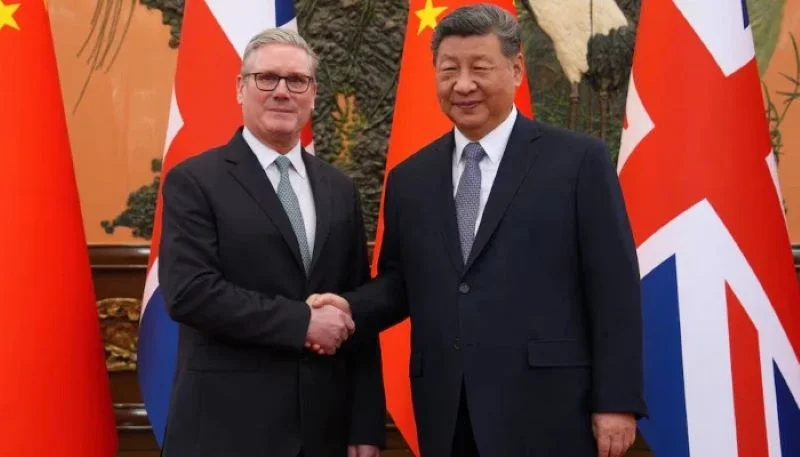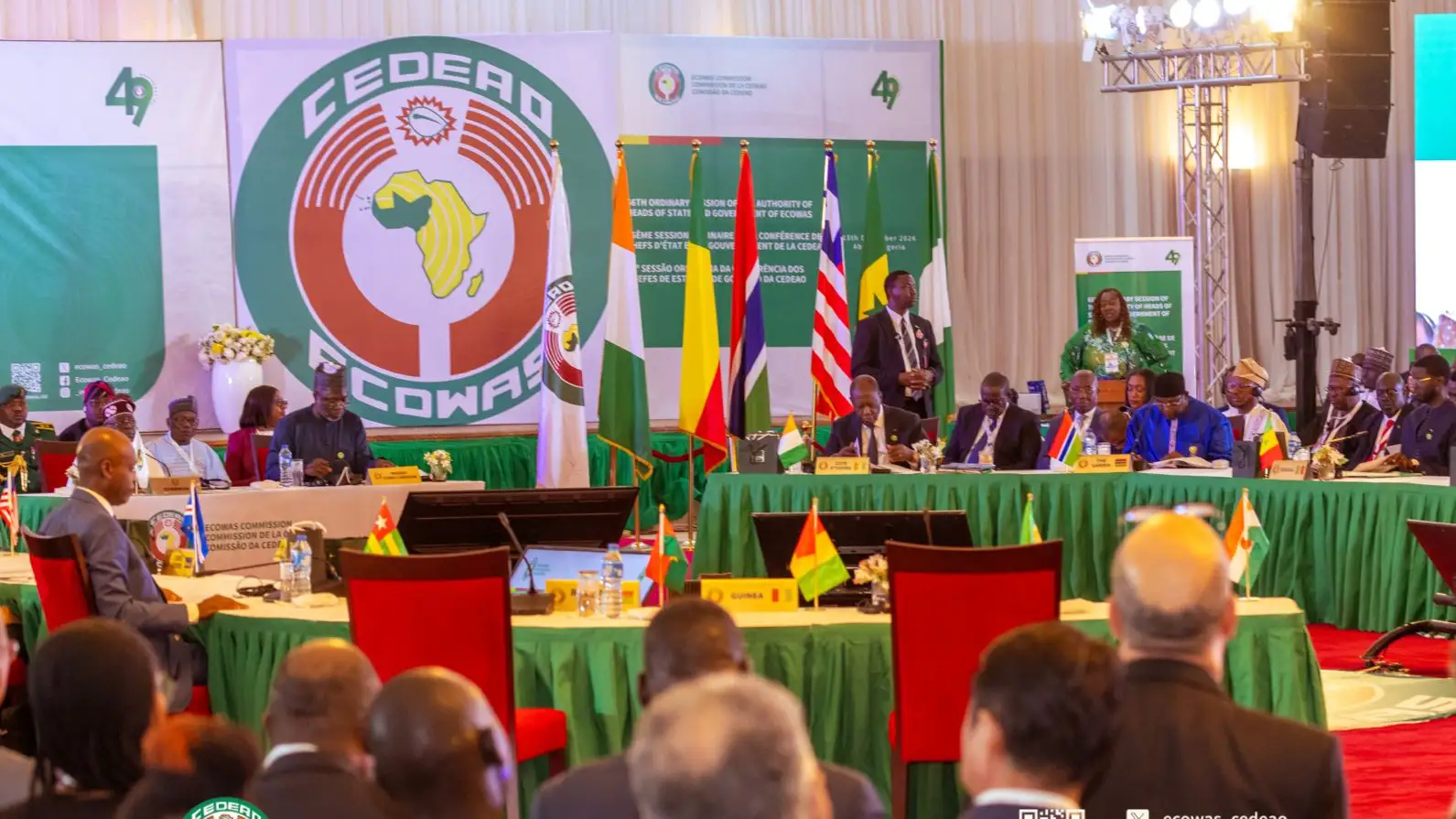Kenya and Tanzania are preparing for high-stakes bilateral negotiations scheduled for Friday, October 3, 2025, aimed at resolving tensions stemming from Tanzania’s controversial July decision to prohibit foreigners from engaging in small-scale business activities—a move that has sent shockwaves through the East African Community (EAC) and raised fundamental questions about the future of regional economic integration.
The upcoming ministerial meeting represents a critical juncture in East African diplomatic relations, as the two neighboring nations seek to balance Tanzania’s sovereign right to regulate its domestic economy against the principles of free movement and trade liberalization that form the cornerstone of the EAC Common Market framework.
Build the future you deserve. Get started with our top-tier Online courses: ACCA, HESI A2, ATI TEAS 7, HESI EXIT, NCLEX-RN, NCLEX-PN, and Financial Literacy. Let Serrari Ed guide your path to success. Enroll today.
Technical Teams Already Engaged in Dar es Salaam
EAC Cabinet Secretary Beatrice Askul, appearing before the National Assembly’s Defence, Intelligence and Foreign Affairs Committee, revealed that a Kenyan technical team is currently deployed in Tanzania conducting preliminary negotiations aimed at securing the lifting or modification of the controversial business restrictions. The presence of technical negotiators in advance of the ministerial meeting signals the seriousness with which both governments are approaching the issue and suggests that significant groundwork is being laid for Friday’s high-level discussions.
Cabinet Secretary Askul sought to reassure Kenyan lawmakers and business communities that Tanzania has provided diplomatic assurances indicating the ban would not specifically target Kenyan nationals, and that any issues affecting Kenyan citizens operating in Tanzania would be addressed through established diplomatic channels. These assurances, while diplomatically significant, have done little to allay concerns among Kenya’s business community, particularly the thousands of small-scale traders who have established operations across the border.
“As much as the ban is anchored in Tanzanian law, it may not directly apply to Kenya. I think they have told us it does not apply to Kenya. They were addressing their other interests in this. And they’ve given us assurance that through our embassy, should any Kenyan national fall victim to this, they will address,” Ms Askul explained to the parliamentary committee, carefully choosing her words to balance diplomatic sensitivity with the need to address domestic political concerns.
Tanzania’s Real Target: Chinese and Turkish Business Infiltration
Cabinet Secretary Askul provided crucial context for understanding Tanzania’s motivations, suggesting that the ban primarily targets what Dar es Salaam perceives as economic infiltration by Chinese and Turkish nationals who have increasingly dominated small-scale retail and service sectors traditionally reserved for local entrepreneurs. This clarification offers important insights into the political economy driving Tanzania’s policy decisions and highlights concerns that extend well beyond bilateral Kenya-Tanzania relations.
“And it’s a local situation. Their problem was China and the Chinese who were infiltrating their markets. The Chinese, the Turkish, who are now in all the businesses, and maybe in Kenya it’s the same. That is their problem,” Askul stated bluntly, acknowledging that similar patterns of foreign business dominance exist in Kenya’s own domestic market, where Chinese, Indian, and other foreign nationals have established significant presence in retail, construction, and service sectors.
The Cabinet Secretary’s comments reflect a broader regional concern about the extent to which Asian business interests, particularly from China, have penetrated African domestic markets at all economic levels—from massive infrastructure projects down to small retail shops in urban markets. While Chinese investment in Africa has brought capital, technology, and infrastructure development, it has also sparked nationalist backlash in countries where local businesses feel overwhelmed by well-capitalized foreign competitors.
Tanzania’s specific mention of Turkish nationals is particularly noteworthy, given Turkey’s expanding economic footprint across East Africa in recent years. Turkish companies and entrepreneurs have established significant presence in construction, textiles, consumer goods, and various service sectors, creating both economic opportunities and competitive pressures for local businesses. The inclusion of Turkish nationals in Tanzania’s concerns suggests that the policy is not solely about China but reflects a broader nationalist economic agenda.
Security Concerns Surrounding Foreign MSMEs
In a revealing statement that adds another dimension to the controversy, Cabinet Secretary Askul indicated that Tanzania has raised concerns about foreign security apparatus infiltrating the Medium, Small and Micro Enterprises (MSMEs) sector. This allegation suggests that Tanzania’s ban may be motivated not only by economic protectionism but also by national security considerations related to intelligence gathering, money laundering, or other illicit activities potentially conducted under the cover of legitimate small businesses.
“So those are the things that they (Tanzania) want to address and they have to do so by law. And they have assured us that should any Kenyan face that, then we should be able to raise it with them,” Ms Askul said, acknowledging Tanzania’s sovereign right to address security concerns through legislative action while emphasizing that diplomatic channels remain open for resolving individual cases affecting Kenyan nationals.
The security dimension adds complexity to what might otherwise be viewed as straightforward economic protectionism. If Tanzania genuinely believes that foreign intelligence services or criminal networks are operating through small business fronts, the situation requires more nuanced diplomatic handling than a simple trade dispute. However, the lack of publicly available evidence supporting such claims raises questions about whether security concerns are being used to justify what is fundamentally an economic nationalist policy.
“They did not have any other way of communicating rather than saying foreigners. So, we fall into that cluster. But as I said, in terms of implementation, they shared with us in confidence, and we believe it is also their confidence that they had a bigger problem that they are trying to address,” Askul explained, suggesting that Tanzania’s broad-brush approach to restricting foreign businesses stems partly from practical enforcement challenges rather than specific targeting of EAC partner states.
Bilateral Agreement Expected Friday
The upcoming ministerial meeting on October 3, 2025, is expected to produce a bilateral agreement that clarifies the application of Tanzania’s business restrictions to Kenyan nationals and potentially creates exemptions or special provisions for citizens of EAC member states. Cabinet Secretary Askul expressed confidence that the negotiations would yield positive outcomes, though the specific terms of any agreement remain to be determined.
“We have a technical team currently negotiating in Tanzania. We will be meeting as Ministers on October 3, 2025 in Tanzania where we expect to sign a bilateral agreement,” Askul stated, setting a concrete deadline for resolving the dispute and signaling both governments’ desire to prevent the controversy from escalating into a broader trade conflict.
The anticipated bilateral agreement represents a pragmatic approach to reconciling Tanzania’s domestic policy objectives with its regional integration commitments. By potentially creating carve-outs or exemptions for EAC nationals, Tanzania could address its concerns about Asian business infiltration while maintaining good relations with regional partners and preserving the integrity of the EAC Common Market framework.
However, such an approach also raises questions about consistency with EAC protocols and whether bilateral exemptions undermine the principle of unified regional policies. If Tanzania grants exemptions to Kenyan nationals, pressure will mount to extend similar treatment to citizens of Uganda, Rwanda, Burundi, South Sudan, and other EAC member states, potentially rendering the restrictions ineffective for their stated purpose.
The July Gazette Notice: 15 Restricted Business Activities
On July 28, 2025, Tanzania issued the Business Licensing (Prohibition of Business Activities for Non-Citizens) Order, 2025, pursuant to the Business Licensing Act (Cap. 101) of Tanzania’s Laws. This official gazette notice formally prohibits non-citizens from engaging in 15 specified business activities, framing the restrictions as necessary for the economic empowerment of Tanzanian citizens and protection of the domestic labor market.
The prohibited business activities span a wide range of small-scale commercial endeavors that have traditionally served as entry points for immigrant entrepreneurs and provided important services in urban and rural communities across Tanzania. The specific sectors targeted by the ban reflect areas where foreign nationals, particularly from Asia and other African countries, have established significant market presence, often leveraging access to capital, supply chains, and business networks not readily available to local entrepreneurs.
The economic rationale behind Tanzania’s policy rests on the argument that reserving certain business sectors for citizens will create entrepreneurial opportunities for Tanzanians who have been crowded out by better-capitalized foreign competitors. This approach to economic nationalism has historical precedents across Africa, including Kenya’s own efforts in the 1970s and 1980s to reserve certain business activities for citizens, and similar policies in countries like Nigeria, Ghana, and South Africa.
Critics argue, however, that such protectionist measures rarely achieve their stated objectives and often harm consumers through reduced competition, higher prices, and lower quality goods and services. The economic literature on business restrictions generally suggests that while such policies may benefit specific domestic business owners, they impose costs on the broader economy through inefficiency and reduced innovation.
One decision can change your entire career. Take that step with our Online courses in ACCA, HESI A2, ATI TEAS 7, HESI EXIT, NCLEX-RN, NCLEX-PN, and Financial Literacy. Join Serrari Ed and start building your brighter future today.
Kenya’s Measured Response: Diplomacy Over Retaliation
Despite the potential harm to Kenyan business interests in Tanzania, Kenya’s government has adopted a deliberately measured response, emphasizing diplomatic engagement over retaliatory measures. This restraint reflects Kenya’s recognition of Tanzania as a crucial trading partner and the importance of maintaining stability within the EAC, where Kenya serves as the largest economy and benefits substantially from preferential access to regional markets.
In August 2025, Prime Cabinet Secretary Musalia Mudavadi told Parliament that Kenya cannot afford to antagonize its neighbors in the East African Community, given that Kenya is the biggest beneficiary of trade within the regional bloc. Mr. Mudavadi, who also serves as the Cabinet Secretary for Foreign and Diaspora Affairs, has played a central role in crafting Kenya’s diplomatic strategy toward Tanzania’s business restrictions.
“EAC is an important bloc to us and we cannot go ruffling feathers and antagonising our neighbours. If there are issues, we must resolve them diplomatically. We don’t want to go to the level of retaliation. The value of the economic bloc is so important to us,” Mr Mudavadi explained, articulating a pragmatic approach that prioritizes long-term regional economic integration over short-term bilateral grievances.
The Prime Cabinet Secretary noted that the EAC market accounts for an impressive 64 percent of Kenya’s total African trade, underscoring the strategic importance of maintaining good relations with regional partners. This dependence on EAC markets makes Kenya particularly vulnerable to trade disruptions and gives Kenyan policymakers strong incentives to resolve disputes through negotiation rather than confrontation.
Violations of EAC Common Market Principles
Despite Kenya’s diplomatic restraint, Prime Cabinet Secretary Mudavadi has not shied away from characterizing Tanzania’s business restrictions as fundamentally inconsistent with EAC commitments. He termed the restrictions as “offending Tanzania’s commitments on liberalisation of trade in services under the EAC Common Market Protocol,” a diplomatic but clear statement that Tanzania’s actions violate the legal framework governing regional economic integration.
The EAC Common Market Protocol, which came into force in 2010, establishes four fundamental freedoms: free movement of goods, labor, services, and capital across member states. The protocol specifically commits member states to progressively liberalize trade in services and remove restrictions on service providers from partner states. Tanzania’s blanket prohibition on foreigners engaging in specified business activities appears to directly contradict these commitments, particularly insofar as the restrictions apply to nationals of EAC partner states.
This tension between national sovereignty and regional integration obligations is not unique to the EAC but represents a fundamental challenge facing all regional economic communities. While member states agree in principle to economic integration, political pressures, nationalist sentiments, and domestic economic challenges frequently lead governments to prioritize national interests over regional commitments. The effectiveness of regional institutions in enforcing compliance and resolving such disputes ultimately determines whether integration remains a meaningful framework or degenerates into aspirational rhetoric.
Economic Stakes: Sh19 Million at Risk for Kenyan Businesses
The Kenyan government has estimated that its citizens risk losing up to Sh19 million (approximately $147,000) if Tanzania’s business restrictions remain in force without exemptions for Kenyan nationals. While this figure may seem modest in the context of overall bilateral trade flows between the two countries, it represents potentially devastating losses for individual small-scale entrepreneurs who have invested their savings and livelihoods in cross-border business activities.
The relatively modest aggregate figure also suggests that Kenyan business presence in Tanzania’s small-scale sectors, while economically significant for the individuals involved, may not represent a major component of bilateral economic relations. This reality may explain Kenya’s restrained response—the diplomatic costs of escalating tensions with Tanzania likely outweigh the economic benefits of defending a relatively small number of business interests.
However, the economic impact extends beyond direct losses to affected businesses. Restrictions on Kenyan entrepreneurs in Tanzania could set precedents that undermine confidence in the EAC integration project, discourage cross-border investment, and prompt other member states to implement similar nationalist policies. The cumulative effect of such measures across the region could significantly erode the economic benefits that have been gradually built through years of integration efforts.
Broader Regional Implications and Precedents
Tanzania’s business restrictions and the diplomatic response they have generated carry implications that extend far beyond bilateral Kenya-Tanzania relations. Other EAC member states are watching closely to see how this dispute is resolved and whether Tanzania faces any consequences for implementing policies that appear inconsistent with regional commitments.
Uganda, Rwanda, Burundi, South Sudan, and the Democratic Republic of Congo (which is in various stages of EAC integration) all have citizens engaged in cross-border small-scale business activities. If Tanzania successfully implements restrictions that exclude or disadvantage foreign nationals from these activities, other countries may be tempted to follow suit, particularly if domestic political pressures favor economic nationalism over regional integration.
The East African Community has long faced challenges in balancing national sovereignty with regional integration objectives. Previous disputes over non-tariff barriers, differing tax policies, and varying implementation of common market provisions have repeatedly tested the community’s cohesion. Tanzania’s business restrictions represent the latest test of whether EAC institutions and mechanisms are robust enough to enforce compliance and maintain the integrity of regional agreements.
The Chinese Factor in East African Economic Nationalism
The specific targeting of Chinese business interests in Tanzania’s policy reflects broader regional anxieties about the nature and impact of Chinese economic engagement in Africa. While China has become Africa’s largest trading partner and a major source of investment and infrastructure financing, this relationship has generated significant controversy and debate.
Critics argue that Chinese economic engagement often fails to create substantial employment for local populations, that Chinese companies bring their own workers rather than hiring locally, that Chinese businesses compete unfairly with local entrepreneurs by accessing cheap financing from Chinese state banks, and that Chinese investment is concentrated in extractive industries and infrastructure rather than manufacturing sectors that could drive broader development.
Supporters counter that Chinese investment fills critical financing gaps that Western donors and investors have neglected, that Chinese infrastructure projects provide essential foundations for economic development, that criticism of Chinese engagement often reflects Western geopolitical concerns rather than African interests, and that African governments remain sovereign actors capable of negotiating terms that serve their national interests.
Tanzania’s specific concerns about Chinese small-scale business presence suggest anxieties that extend beyond large infrastructure projects to everyday economic competition. The image of Chinese nationals operating small retail shops, restaurants, or service businesses in African markets—competing directly with local entrepreneurs in sectors previously dominated by citizens—has become a politically potent symbol of Chinese economic penetration that resonates with nationalist sentiments.
Kariakoo Market: Symbol of Tanzania’s Commercial Heart
The iconic Kariakoo market in Dar es Salaam, featured in the photograph accompanying this article, serves as a powerful symbol of the issues at stake in this dispute. Kariakoo is Tanzania’s largest and most famous market, a sprawling commercial district where thousands of traders buy and sell goods ranging from textiles and electronics to food and household items. The market represents the heart of Tanzania’s informal economy and small-scale commerce—precisely the sectors that the business restrictions aim to reserve for Tanzanian citizens.
For generations, Kariakoo has been a melting pot of commercial activity, where traders from across East Africa and beyond have established businesses, built commercial networks, and contributed to Dar es Salaam’s vibrancy as a regional commercial hub. The market embodies both the opportunities and tensions of cross-border economic integration, where the free movement of goods and people creates prosperity but also competition that can disadvantage some local traders.
The enforcement of business restrictions in markets like Kariakoo will test Tanzania’s capacity to distinguish between legitimate citizen concerns about economic competition and the xenophobic tendencies that such policies can unleash. History suggests that policies framed in nationalist economic terms can easily slide into discrimination, harassment, and violence against foreign nationals, creating humanitarian concerns that extend beyond economic policy disputes.
Looking Ahead: Can Regional Integration Survive Economic Nationalism?
As Kenya and Tanzania prepare for Friday’s critical negotiations, the outcome will provide important signals about the resilience of East African regional integration in the face of nationalist economic pressures. Several scenarios are possible, each with different implications for the future of the EAC and cross-border economic cooperation.
In the most optimistic scenario, Kenya and Tanzania reach a bilateral agreement that exempts EAC nationals from business restrictions while addressing Tanzania’s legitimate concerns about non-African foreign business presence. This outcome would preserve regional integration principles while acknowledging sovereign rights to regulate domestic economies, though it would raise questions about consistency with multilateral EAC frameworks.
Alternatively, negotiations could produce ambiguous outcomes that paper over fundamental disagreements, leaving enforcement discretion to Tanzanian authorities and creating ongoing uncertainty for Kenyan business operators. This scenario would preserve diplomatic relations while failing to provide the clarity and predictability that cross-border commerce requires.
In the worst case, negotiations could fail to produce agreement, leading to continued implementation of restrictions affecting Kenyan nationals, potential Kenyan retaliation, and a broader deterioration in bilateral relations that undermines regional integration and economic cooperation. While both governments have strong incentives to avoid this outcome, domestic political pressures and nationalist sentiments could complicate diplomatic efforts to find compromise.
Conclusion: Testing the EAC’s Institutional Strength
The Kenya-Tanzania business restrictions dispute represents a critical test of the East African Community’s institutional maturity and its ability to balance national sovereignty with regional integration commitments. As technical teams work toward Friday’s ministerial meeting, the stakes extend far beyond the immediate economic interests of affected small-scale traders to encompass fundamental questions about the future trajectory of East African integration.
Will the EAC prove robust enough to enforce compliance with common market principles, or will it reveal itself as a weak framework easily circumvented when regional commitments conflict with domestic political pressures? Can creative diplomacy find solutions that address legitimate national concerns while preserving the integrity of regional agreements? Will this dispute accelerate economic nationalism across the region, or will it catalyze renewed commitment to integration principles?
The answers to these questions will emerge not only from Friday’s negotiations but from the implementation and enforcement of whatever agreements are reached. For Kenya’s business community operating in Tanzania, for Tanzania’s policymakers seeking to balance nationalist pressures with regional obligations, and for the broader East African project of creating a unified economic space, the coming days will provide crucial indications of whether regional integration can weather the storms of economic nationalism or whether it will fracture under the weight of competing national interests.
Ready to take your career to the next level? Join our Online courses: ACCA, HESI A2, ATI TEAS 7 , HESI EXIT , NCLEX – RN and NCLEX – PN, Financial Literacy!🌟 Dive into a world of opportunities and empower yourself for success. Explore more at Serrari Ed and start your exciting journey today! ✨
Track GDP, Inflation and Central Bank rates for top African markets with Serrari’s comparator tool.
See today’s Treasury bonds and Money market funds movement across financial service providers in Kenya, using Serrari’s comparator tools.
Photo source: Google
By: Montel Kamau
Serrari Financial Analyst
2nd October, 2025
Article, Financial and News Disclaimer
The Value of a Financial Advisor
While this article offers valuable insights, it is essential to recognize that personal finance can be highly complex and unique to each individual. A financial advisor provides professional expertise and personalized guidance to help you make well-informed decisions tailored to your specific circumstances and goals.
Beyond offering knowledge, a financial advisor serves as a trusted partner to help you stay disciplined, avoid common pitfalls, and remain focused on your long-term objectives. Their perspective and experience can complement your own efforts, enhancing your financial well-being and ensuring a more confident approach to managing your finances.
Disclaimer: This article is for informational purposes only and does not constitute financial advice. Readers are encouraged to consult a licensed financial advisor to obtain guidance specific to their financial situation.
Article and News Disclaimer
The information provided on www.serrarigroup.com is for general informational purposes only. While we strive to keep the information up to date and accurate, we make no representations or warranties of any kind, express or implied, about the completeness, accuracy, reliability, suitability, or availability with respect to the website or the information, products, services, or related graphics contained on the website for any purpose. Any reliance you place on such information is therefore strictly at your own risk.
www.serrarigroup.com is not responsible for any errors or omissions, or for the results obtained from the use of this information. All information on the website is provided on an as-is basis, with no guarantee of completeness, accuracy, timeliness, or of the results obtained from the use of this information, and without warranty of any kind, express or implied, including but not limited to warranties of performance, merchantability, and fitness for a particular purpose.
In no event will www.serrarigroup.com be liable to you or anyone else for any decision made or action taken in reliance on the information provided on the website or for any consequential, special, or similar damages, even if advised of the possibility of such damages.
The articles, news, and information presented on www.serrarigroup.com reflect the opinions of the respective authors and contributors and do not necessarily represent the views of the website or its management. Any views or opinions expressed are solely those of the individual authors and do not represent the website's views or opinions as a whole.
The content on www.serrarigroup.com may include links to external websites, which are provided for convenience and informational purposes only. We have no control over the nature, content, and availability of those sites. The inclusion of any links does not necessarily imply a recommendation or endorsement of the views expressed within them.
Every effort is made to keep the website up and running smoothly. However, www.serrarigroup.com takes no responsibility for, and will not be liable for, the website being temporarily unavailable due to technical issues beyond our control.
Please note that laws, regulations, and information can change rapidly, and we advise you to conduct further research and seek professional advice when necessary.
By using www.serrarigroup.com, you agree to this disclaimer and its terms. If you do not agree with this disclaimer, please do not use the website.
www.serrarigroup.com, reserves the right to update, modify, or remove any part of this disclaimer without prior notice. It is your responsibility to review this disclaimer periodically for changes.
Serrari Group 2025
















